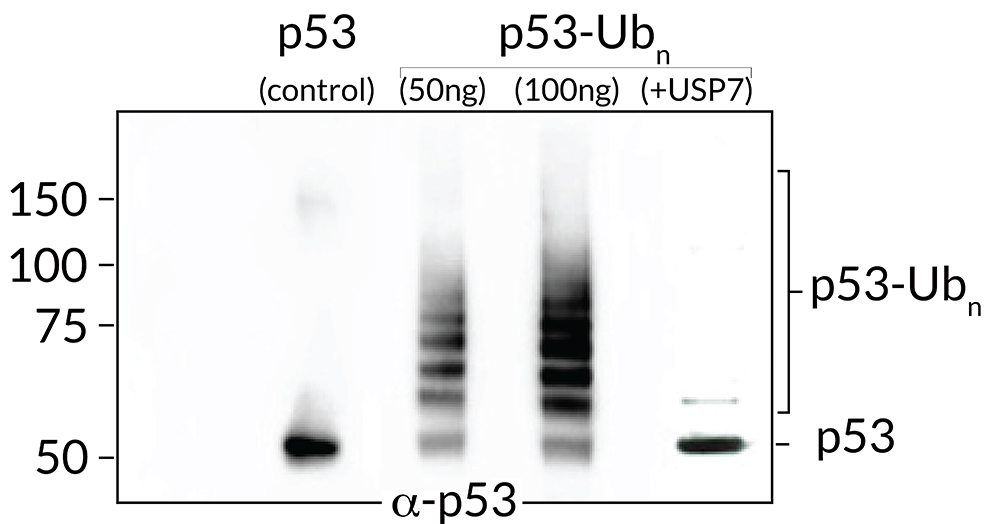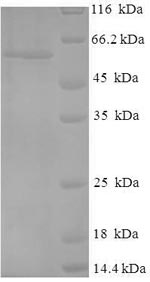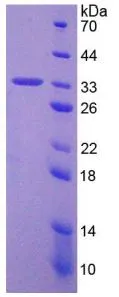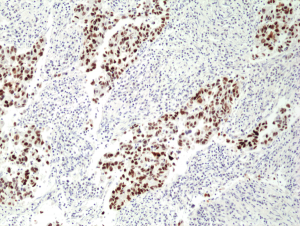
Ubiquitinated-p53 Western Blot: From left to right: Control His6-p53 (50ng), ubiquitinated-p53 (50ng and 100ng) and ubiquitinated-p53 digested with USP7 (50ng).
p53 (polyubiquitinated) (human) (rec.) (His)
SBB-US0012
Protein IDP04637
Product group Proteins / Signaling Molecules
Overview
- SupplierSouth Bay Bio
- Product Namep53 (polyubiquitinated) (human) (rec.) (His)
- Delivery Days Customer2
- CertificationResearch Use Only
- Estimated Purity>95%
- Gene ID7157
- Target nameTP53
- Target descriptiontumor protein p53
- Target synonymsBCC7, BMFS5, LFS1, P53, TRP53, cellular tumor antigen p53, antigen NY-CO-13, mutant tumor protein 53, phosphoprotein p53, transformation-related protein 53, tumor protein 53, tumor supressor p53
- Protein IDP04637
- Protein NameCellular tumor antigen p53
- Scientific Descriptionp53 acts as a tumor suppressor in many tumor types, induces growth arrest or apoptosis depending on the physiological circumstances and cell type. Involved in cell cycle regulation as a trans-activator that acts to negatively regulate cell division by controlling a set of genes required for this process. Prevents CDK7 kinase activity when associated to CAK complex in response to DNA damage, thus stopping cell cycle progression. E3 ligase MDM2 mediated ubiquitin conjugation of p53 and subsequent p53 down-regulation via proteasomal degradation interrupts this crucial role, contributing to tumorogenesis (and cancer). - Protein. Human p53 (aa 2-393)fused to a N-terminal His-tag, ubiquitinated by MDM2, and subsequently purified from conjugation-reaction proteins/enriched post-conjugation. Source: E. coli. Formulation: Liquid. In 50mM HEPES pH 7.5, 500 mM sodium chloride, 10% glycerol, 2mM TCEP. Purity: >95% (SDS-PAGE). p53 acts as a tumor suppressor in many tumor types, induces growth arrest or apoptosis depending on the physiological circumstances and cell type. Involved in cell cycle regulation as a trans-activator that acts to negatively regulate cell division by controlling a set of genes required for this process. Prevents CDK7 kinase activity when associated to CAK complex in response to DNA damage, thus stopping cell cycle progression. E3 ligase MDM2 mediated ubiquitin conjugation of p53 and subsequent p53 down-regulation via proteasomal degradation interrupts this crucial role, contributing to tumorogenesis (and cancer).
- Storage Instruction-80°C
- UNSPSC41116100
- SpeciesHuman





